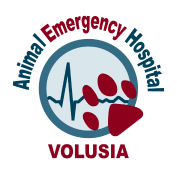February is American Heart Month! Like us, our pets can also experience heart problems, so we thought this was a good time to talk about what pet parents should know about dog and cat heart health.
According to the American College of Veterinary Internal Medicine (ACVIM), about 10% of dogs and up to 15% of cats develop some form of heart disease in their lifetime. Pets can experience heart conditions that are present at birth (congenital) or develop over time (acquired). Some breeds, including Boxers, Cavalier King Charles Spaniels, Golden Retrievers, and Maine Coon and Persian cats, have higher instances of hereditary heart defects in their bloodlines, putting them at greater risk for heart disease.
Signs & Symptoms
Symptoms are easier to detect in dogs than in cats, but any of the following can indicate a heart problem:
- Shortness of breath or increased breathing rates: Congestive heart failure (CHF) occurs when the heart cannot pump blood efficiently to the vital organs. Pressure builds up and fluid leaks from the blood vessels into the lungs, around the lungs, or into the abdomen, making it hard to breathe. A distended abdomen can also be a sign of CHF.
- Persistent Cough: An enlarged heart pressing on the windpipe or fluid in the lungs from CHF can lead pets to cough.
- Weakness or exercise intolerance: If the heart cannot deliver blood effectively and efficiently to the lungs and muscles, your pet’s energy and activity level may drop.
- Fainting or collapsing: Cardiac patients may collapse due to the heart failing to pump blood and provide oxygen to the brain, or if they have an abnormal heart rhythm.
- Sudden paralysis: When blood clots form in the heart and move to a point between the rear legs, paralysis can occur. This condition, called saddle thrombus, is more common in cats.
- Abnormal behaviors: Cats are very good at hiding illness. Symptoms as subtle as hiding in strange places, increased aggression, or not eating can be signs of heart disease.
If your pet displays any of these symptoms, see your primary care veterinarian immediately, who can check for a heart murmur or irregular heartbeat (arrhythmia). They may order additional tests to learn more, including blood pressure tests, echocardiogram, electrocardiograms, chest radiographs (X-rays), or blood work. Depending on their findings, your veterinarian may recommend a referral to a board-certified veterinary cardiologist.
How Is Heart Disease in Pets Treated?
Although heart disease cannot be reversed, it can typically be managed for months to years with medication and careful monitoring. Many pets with heart conditions can live relatively normal and healthy lives. In fact, most heart conditions do not require surgery and can be treated with appropriate prescription medication. Often, more frequent checkups will be recommended to ensure your pet’s treatment is effective.
Early Detection and Prevention
Unfortunately, because of the role genetics play, heart disease cannot always be prevented. However, the earlier heart disease is detected, the more likely your pet can remain happy and comfortable for as long as possible. You can reduce your pet’s risk by scheduling routine exams with your primary care veterinarian and giving your pet heartworm preventative medication all year round – including cats. Regular exercise and a quality diet can keep your furry loved one’s heart strong and healthy.
Additionally, the FDA is currently investigating an increase in cases of dilated cardiomyopathy in dog breeds not typically prone to this disease. Based on data collected by board-certified veterinary nutritionists and cardiologists, the FDA believes that dogs fed diets with non-soy legumes (peas, lentils, chickpeas, or potatoes) high on their ingredient lists may be at higher risk for developing DCM. The investigation is ongoing, but in the meantime, our recommendation is avoid feeding your dog grain-free or boutique diets. Always make sure your dog’s food includes the words “complete and balanced” on the label.
If you have questions about your pet’s heart health, or if you think your pet is experiencing an emergency, give us a call at 386-252-0206.

